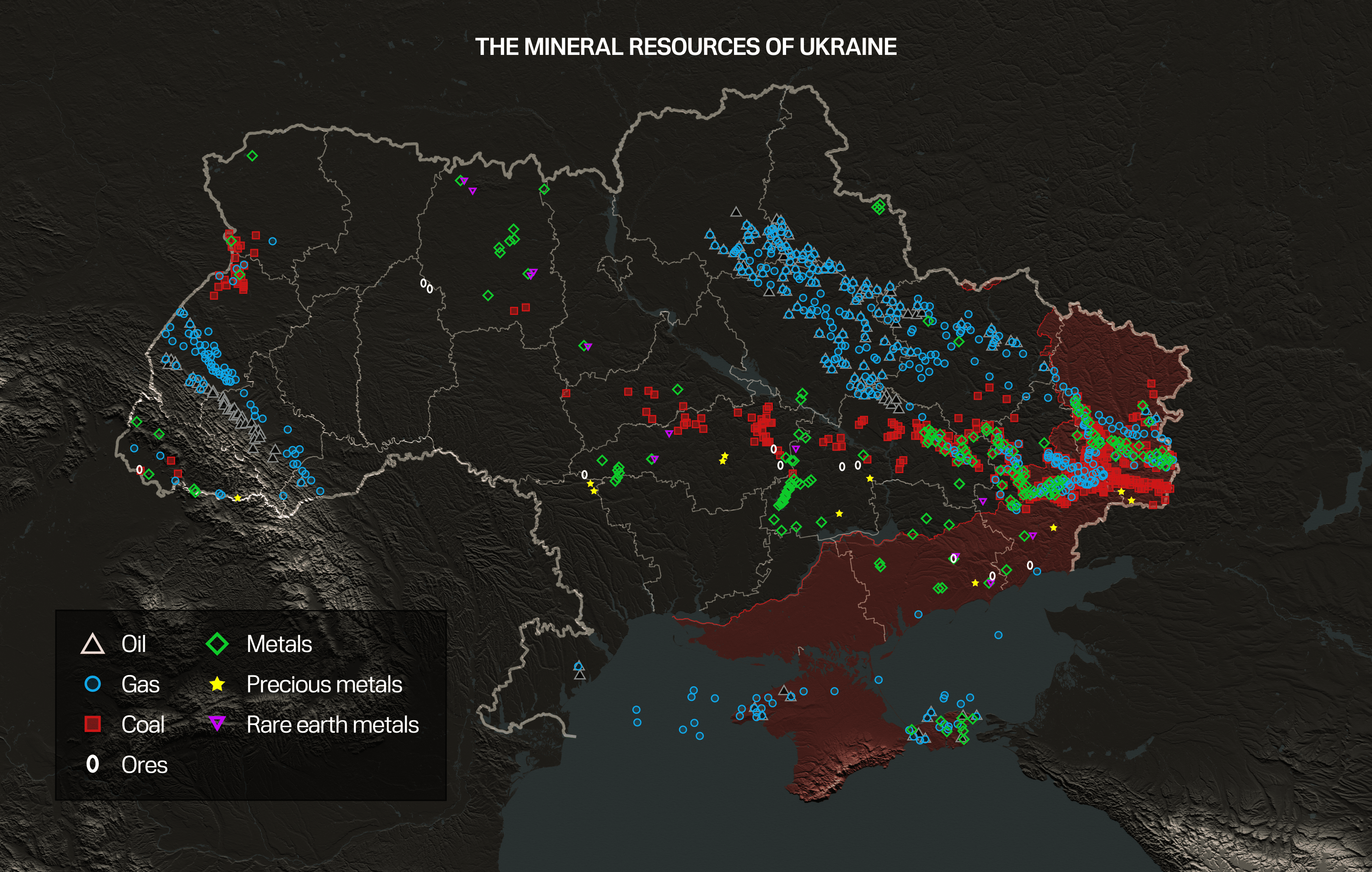Rare Earth Mineral Scarcity: A Catalyst For A New Cold War?

Table of Contents
The Geopolitical Distribution of Rare Earth Minerals and its Implications
China's Dominance in Rare Earth Mining and Processing
China's overwhelming control over the rare earth mineral supply chain is a defining feature of the current geopolitical landscape. China possesses approximately 70% of the world's rare earth reserves and accounts for over 60% of global production. This dominance allows China significant leverage in global trade and creates the potential for using this control to achieve political objectives.
- Market Share: China's control extends beyond mining; it processes and refines the majority of the world's rare earth elements, controlling the entire value chain.
- Export Restrictions: China has historically used export restrictions on rare earth minerals as a tool of leverage in trade disputes, causing significant economic disruption for reliant nations.
- Economic Impact: The reliance on China for rare earth elements creates significant economic vulnerability for many countries, particularly those heavily invested in technology sectors.
Diversification Efforts and Their Challenges
Recognizing the risks associated with China's dominance, several countries, including the US, Australia, and Canada, are undertaking significant efforts to diversify rare earth mineral sourcing and processing. However, these efforts face substantial challenges.
- Environmental Regulations: Strict environmental regulations in many countries increase the cost of mining and processing rare earth minerals, making it less economically competitive compared to less regulated regions.
- High Extraction Costs: The extraction and processing of rare earth minerals are inherently complex and expensive, requiring significant capital investment and advanced technology.
- Technological Hurdles: Developing the necessary technology for efficient and environmentally responsible rare earth processing remains a significant technological hurdle.
- Project Examples: While projects are underway in various countries, scaling them up to meaningfully challenge China's dominance remains a major challenge. The economic viability of these projects, many of which are still in early stages, needs further evaluation.
The Role of Rare Earth Minerals in Critical Technologies
Essential Components in Green Technologies
Rare earth minerals are essential components in many green technologies critical to addressing climate change. Their use is ubiquitous in renewable energy technologies, driving concerns regarding future supply.
- Wind Turbines: Neodymium magnets, crucial for wind turbine generators, rely heavily on rare earth elements like neodymium and dysprosium.
- Electric Vehicles: Electric vehicle motors also require these strong and lightweight rare earth magnets.
- Solar Panels: While less reliant on rare earth minerals than other green technologies, solar panels still utilize these elements in some components.
- Demand Implications: The global transition to a green economy exponentially increases the demand for rare earth minerals, intensifying the scarcity issue.
Military and Defense Applications
The strategic importance of rare earth minerals extends beyond the civilian sector. They are indispensable in various advanced military technologies, raising significant national security concerns.
- Guided Missiles: Precision-guided munitions rely heavily on rare earth elements for their guidance systems.
- Radar Systems: High-performance radar systems utilize rare earth magnets for their efficiency and power.
- Night Vision Equipment: Rare earth elements are vital components in many night vision technologies used by military forces.
- National Security Implications: Dependence on a single supplier for these critical military components creates significant vulnerabilities and potential for geopolitical conflict.
Economic and Political Risks of Rare Earth Mineral Scarcity
Price Volatility and Supply Chain Disruptions
Rare earth mineral scarcity creates the potential for significant price volatility and supply chain disruptions, posing a risk to global economic stability.
- Price Fluctuations: Historical data shows considerable price fluctuations in the rare earth minerals market, often influenced by geopolitical factors and market speculation.
- Market Manipulation: The concentrated nature of the market creates potential for market manipulation and price gouging.
- Industry Vulnerability: Industries reliant on rare earth minerals, such as the automotive and renewable energy sectors, are particularly vulnerable to supply disruptions and price hikes.
Potential for Geopolitical Conflict and Trade Wars
The competition for access to rare earth minerals creates fertile ground for escalating geopolitical tensions and trade wars.
- Conflict Scenarios: Securing access to rare earth mineral resources could trigger conflicts between nations or lead to aggressive diplomatic maneuvers.
- International Cooperation: International organizations play a crucial role in mitigating these risks through diplomacy, sustainable resource management, and collaborative initiatives.
- Diplomatic Solutions: Addressing this challenge requires a multi-faceted approach involving international cooperation, technological innovation, and responsible resource management.
Conclusion
The scarcity of rare earth minerals presents a significant and growing geopolitical challenge. China's dominance, coupled with the critical role these elements play in green technologies and national security, creates a volatile environment ripe for conflict. Price volatility, supply chain disruptions, and the potential for trade wars are all real risks. Understanding the complexities of rare earth mineral scarcity is crucial for navigating the evolving geopolitical landscape. Stay informed and advocate for responsible sourcing, sustainable mining practices, recycling initiatives, and the development of alternative materials to prevent this critical resource from becoming a catalyst for global conflict. We must strive for a future where the demand for these vital elements does not lead to a new era of geopolitical tension, but rather, inspires responsible innovation and international cooperation.

Featured Posts
-
 Fortnite Cowboy Bebop Collaboration Free Rewards Available For A Short Time
May 17, 2025
Fortnite Cowboy Bebop Collaboration Free Rewards Available For A Short Time
May 17, 2025 -
 Knicks Vs Pistons Avoiding A Cade Cunningham Led Upset
May 17, 2025
Knicks Vs Pistons Avoiding A Cade Cunningham Led Upset
May 17, 2025 -
 March 13th 2025 Knicks Vs Trail Blazers Live Game Updates
May 17, 2025
March 13th 2025 Knicks Vs Trail Blazers Live Game Updates
May 17, 2025 -
 Watch Cybersecurity Experts Deepfake Detector Bypass On Cnn Business
May 17, 2025
Watch Cybersecurity Experts Deepfake Detector Bypass On Cnn Business
May 17, 2025 -
 Tonights Nba Game Hornets Vs Celtics Prediction And Betting Analysis
May 17, 2025
Tonights Nba Game Hornets Vs Celtics Prediction And Betting Analysis
May 17, 2025
